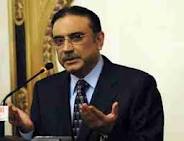Major General Tajammul Hussain Malik has made his Nation Proud many a times, but alike many his efforts have been lost in history.
Tajammul Hussain Malik's raise started from Indo-Pak War 1971, when as a Brigadier-General, he volunteered to leave GHQ, Rawalpindi and led the 205 Brigade of Pakistan Army in East Pakistan, i.e. just four (4) days before the war. He didn't only put up a stiff resistance but also refused to surrender that earned praise from many quarters.
He was the only Red Tape Pakistani Officer who did not surrender and after his subsequent capture, Malik and his unit became POWs for over a year.

The Battle of Hilli or the Battle of Bogra was a Major Battle fought in the Indo-Pak War of 1971. The battle of Hilli took place between 23rd November 1971 and 11th December 1971, although the final surrender took place on 18th December 1971 (i.e. exactly fourty (40) years ago).
The main objective of the Indian Army was to control Bogra, thereby cutting off Pakistan forces in the north from the rest of East Pakistan. The best way of getting to Bogra was through Hilli. The frontal assault on the Pakistan fortifications took a huge toll on the Indian Army.
The Indian side consisted of the 20th Indian Mountain Division with a strength of 20,000 men, led by Major General Lachhman Singh. The constituent units of this division were 66 Brigade, 165 Brigade, 202 Brigade and 340 Brigade (all infantry units), 3 Armoured Brigade, 471 Engineer Brigade and two artillery brigades augmented by 33 Corps Artillery. The ground troops were aided by aerial support provided by the Indian Air Force which had acquired air superiority in the east and were armed with rockets, guns and 100 lb bombs.
On the Pakistan side, the Area of Responsibility (AOR) was on 205 Brigade of Pakistan Army led by Brigadier Tajammul Hussain Malik. The Brigade put up a stiff resistance that earned praise from many quarters.
Malik had placed screens along the Railway Line nearby and at the Railway Station Complex in the area. The defensive positions were sited in depth to cover all routes leading into East Pakistan. They fought the entire Indian Division and the Mukti Bahini Soldiers until the Indians decided to bypass Hilli and establish a block in its rear. Brigadier Malik then withdrew the forces in Hilli to avoid being cut off and to defend for the Bogra itself.
Bogra was surrounded from all sides by the greater numbers of the Indian Army and the Mukti Bahini. Brigadier Malik's resistance continued even after the Pakistani Eastern Command surrendered in Dacca on 16th December. He, in his Staff Car with Flags and Stars uncovered went around the streets of Bogra motivating his soldiers to keep fighting. The Indian Army had by then, surrounded the city of Bogra. The Brigade Major along with some 50 ORs surrendered but the Brigadier still full of vigour refused to give up.
Brigadier Malik ordered the rest of his Brigade to break out in small groups to Naogong, where one of his Units was still fighting on. However en-route, his jeep was ambushed, severely injuring him and his orderly. Muktis captured both of them and subjected them to torture. They broke his arms and split his head after which he was taken semi-conscious to an Indian Army Hospital. Major General Nazar Hussain Shah, was especially flown in from Natore for the surrender of this Brigade on 18th December 1971, due to the refusal of Brigadier Malik.
After his release and repatriation to Pakistan, Malik was the only Brigadier-General out of thirty-two (32) who had fought the War in East Pakistan to be promoted to Major General Rank. He held the command of 23 Division in Jehlum as a Major General.
However, he was retired by a Military Tribunal of the Judge Advocate General Branch headed by Army Chief General Zia-ul-Haq over accusations of attempting to overthrow the Government of Zulfiqar Ali Bhutto.
Again in 1980, Malik organised a Coup Attempt against the Military Regime of General Zia-ul-Haq, with other Army Officers, including his son Naved and his nephew. The plan was to assassinate Zia during the Pakistan Day Parade on 23rd March 1980. However, the plot was exposed and Malik, his son and the conspirators were arrested and sentenced to Life Imprisonment.
Tajammul Hussain Malik was released from prison in 1988, following the death of Zia-ul-Haq in a plane crash. He published his autobiography, The Story Of My Struggle, in 1991. He is alive and lives in his native home in Chakwal, Punjab.
Related Posts:



























